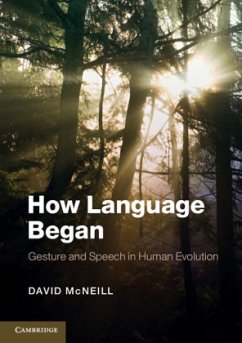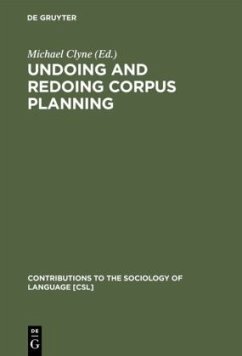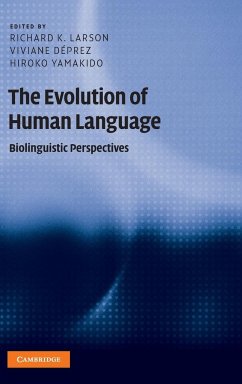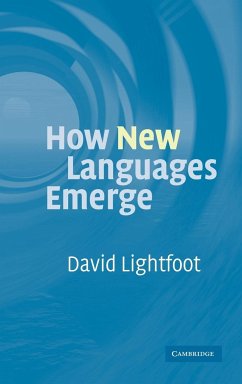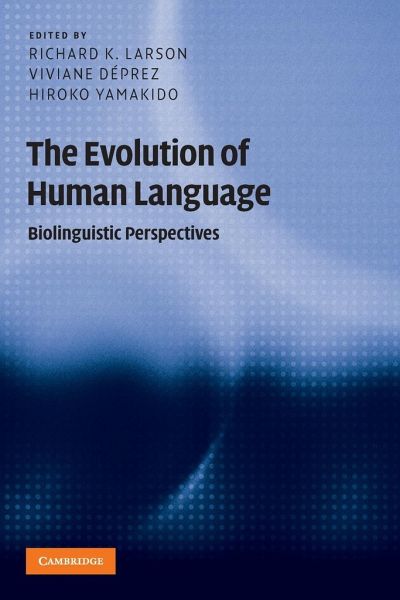
The Evolution of Human Language
Versandkostenfrei!
Versandfertig in 1-2 Wochen
48,99 €
inkl. MwSt.

PAYBACK Punkte
24 °P sammeln!
The way language as a human faculty has evolved is a question that preoccupies researchers from a wide spread of disciplines. In this book, a team of writers has been brought together to examine the evolution of language from a variety of such standpoints, including language's genetic basis, the anthropological context of its appearance, its formal structure, its relation to systems of cognition and thought, as well as its possible evolutionary antecedents. The book includes Hauser, Chomsky, and Fitch's seminal and provocative essay on the subject, 'The Faculty of Language,' and charts the pro...
The way language as a human faculty has evolved is a question that preoccupies researchers from a wide spread of disciplines. In this book, a team of writers has been brought together to examine the evolution of language from a variety of such standpoints, including language's genetic basis, the anthropological context of its appearance, its formal structure, its relation to systems of cognition and thought, as well as its possible evolutionary antecedents. The book includes Hauser, Chomsky, and Fitch's seminal and provocative essay on the subject, 'The Faculty of Language,' and charts the progress of research in this active and highly controversial field since its publication in 2002. This timely volume will be welcomed by researchers and students in a number of disciplines, including linguistics, evolutionary biology, psychology, and cognitive science.





